This article was co-authored by Kelli Miller, LCSW, MSW and by wikiHow staff writer, Hannah Madden. Kelli Miller is a Psychotherapist based in Los Angeles, California. Kelli specializes in individual and couples therapy focusing on relationships, depression, anxiety, sexuality, communication, parenting, and more. Kelli also facilitates groups for those struggling with alcohol and drug addiction as well as anger management groups. She is the author of “Professor Kelli’s Guide to Finding a Husband” and the award-winning and best-selling book “Thriving with ADHD”. Kelli co-hosted an advice show on LA Talk Radio and is a relationship expert for The Examiner. She received her MSW (Masters of Social Work) from the University of Pennsylvania and a BA in Sociology/Health from the University of Florida.
There are 8 references cited in this article, which can be found at the bottom of the page.
This article has been viewed 7,692 times.
When you’ve been cheated on, it can feel like you’ll never be able to trust anyone again. Since trust is the foundation of a healthy relationship, rebuilding that is incredibly important, whether you’d like to give your partner a second chance or you’re moving on to someone new. We’ve answered your questions about trust in relationships to help you heal and move on from infidelity. It might not happen instantly, but if you keep at it and don’t give up, you will be able to trust again in time.
This article is based on an interview with our relationship expert, Kelli Miller, licensed pyschotherapist and award-winning author. Check out the full interview here.
Steps
What should you not do after being cheated on?
-
1Don’t make rash decisions. In the flurry of emotions after you discover you’ve been cheated on, it’s almost impossible to make a rational choice about your relationship. Give yourself some time to think about what happened and what you’d like to do next, even though it might seem hard. After a few days (or weeks), you can come back to your partner with a decision about the relationship and whether you’d like to continue it or break up.[11]
-
2Don’t ignore what happened. Sweeping infidelity under the rug never works out, and it can cause bigger issues in the long run. You and your partner need to get everything out into the open, no matter how much it hurts. Then, you start the healing and forgiveness process, both for yourself and for your relationship.[12]
-
3Don’t ignore your self-care. Your well-being is extremely important during this emotional time. As you work through your own thoughts and feelings, be sure that you’re still eating well, sleeping for around 8 hours, and doing something for yourself once a day. It might feel like it’s unimportant, but taking the time for yourself can make all the difference.[13]
- You might try taking a hike, going for a bike ride, reading a good book, listening to music, or taking a relaxing bubble bath.
How do you heal from being cheated on and lied to?
-
1Lean on your support system. Your close friends and family members can give you the support you need during this tough time. Reach out to them and explain what’s going on so they can comfort and distract you. If you don’t feel like sharing what’s happening, simply hang out with them to get out of the house and clear your head.[16]
-
2Don’t blame yourself. It can be easy to blame yourself for your partner cheating, but that’s never the case. No matter why your partner cheated or how they framed it, there are a million other things they could have done besides stepping outside of the relationship. As you work past your trauma toward healing, keep reminding yourself that you did nothing wrong.[17] [18]
-
3Get professional help if you need to. Aside from couple’s counseling to work on your relationship, individual therapy can also be very helpful. They can help you work through your emotions and process everything that you’ve gone through up until this point. They can also help you make a decision about your relationship and whether or not you want to move forward with it. Reach out to a licensed professional today to talk about getting an appointment if you’d like to.[19]
Expert Q&A
-
QuestionWhat do you do when you suspect your partner is cheating?
 Kelli Miller, LCSW, MSWKelli Miller is a Psychotherapist based in Los Angeles, California. Kelli specializes in individual and couples therapy focusing on relationships, depression, anxiety, sexuality, communication, parenting, and more. Kelli also facilitates groups for those struggling with alcohol and drug addiction as well as anger management groups. She is the author of “Professor Kelli’s Guide to Finding a Husband” and the award-winning and best-selling book “Thriving with ADHD”. Kelli co-hosted an advice show on LA Talk Radio and is a relationship expert for The Examiner. She received her MSW (Masters of Social Work) from the University of Pennsylvania and a BA in Sociology/Health from the University of Florida.
Kelli Miller, LCSW, MSWKelli Miller is a Psychotherapist based in Los Angeles, California. Kelli specializes in individual and couples therapy focusing on relationships, depression, anxiety, sexuality, communication, parenting, and more. Kelli also facilitates groups for those struggling with alcohol and drug addiction as well as anger management groups. She is the author of “Professor Kelli’s Guide to Finding a Husband” and the award-winning and best-selling book “Thriving with ADHD”. Kelli co-hosted an advice show on LA Talk Radio and is a relationship expert for The Examiner. She received her MSW (Masters of Social Work) from the University of Pennsylvania and a BA in Sociology/Health from the University of Florida.
Psychotherapist Be direct! Sit down with your partner and share your concerns in a non-accusatory way. You might say, "Hey, I'm having some fears that you're going outside the relationship. Can we talk about this in an open and honest way?"
Be direct! Sit down with your partner and share your concerns in a non-accusatory way. You might say, "Hey, I'm having some fears that you're going outside the relationship. Can we talk about this in an open and honest way?"
References
- ↑ Kelli Miller, LCSW, MSW. Psychotherapist. Expert Interview. 11 June 2020.
- ↑ https://psychcentral.com/blog/getting-over-the-hurt-of-an-affair#1
- ↑ https://www.mayoclinic.org/healthy-lifestyle/adult-health/in-depth/infidelity/art-20048424
- ↑ Kelli Miller, LCSW, MSW. Psychotherapist. Expert Interview. 11 June 2020.
- ↑ https://psychcentral.com/blog/getting-over-the-hurt-of-an-affair#3
- ↑ Kelli Miller, LCSW, MSW. Psychotherapist. Expert Interview. 11 June 2020.
- ↑ Kelli Miller, LCSW, MSW. Psychotherapist. Expert Interview. 11 June 2020.
- ↑ https://psychcentral.com/blog/getting-over-the-hurt-of-an-affair#3
- ↑ Kelli Miller, LCSW, MSW. Psychotherapist. Expert Interview. 11 June 2020.
- ↑ https://www.psychologytoday.com/us/blog/loving-bravely/202010/once-cheater-always-cheater
- ↑ https://www.mayoclinic.org/healthy-lifestyle/adult-health/in-depth/infidelity/art-20048424
- ↑ https://www.gottman.com/blog/reviving-trust-after-an-affair/
- ↑ https://psychcentral.com/blog/getting-over-the-hurt-of-an-affair#3
- ↑ https://www.psychologytoday.com/us/blog/evil-deeds/201003/when-partners-cheat-who-deserves-second-chances
- ↑ Kelli Miller, LCSW, MSW. Psychotherapist. Expert Interview. 11 June 2020.
- ↑ https://au.reachout.com/articles/how-to-cope-with-being-cheated-on
- ↑ https://au.reachout.com/articles/how-to-cope-with-being-cheated-on
- ↑ Kelli Miller, LCSW, MSW. Psychotherapist. Expert Interview. 11 June 2020.
- ↑ https://au.reachout.com/articles/how-to-cope-with-being-cheated-on


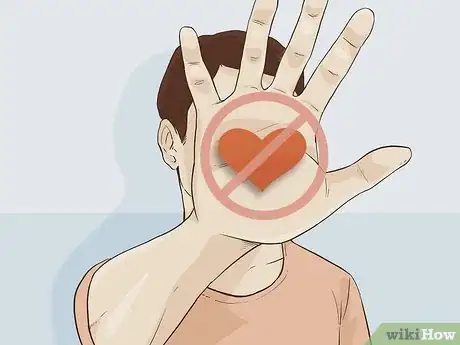
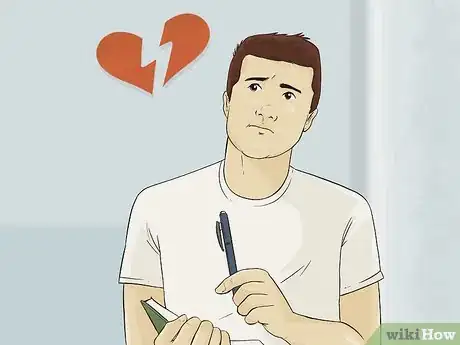

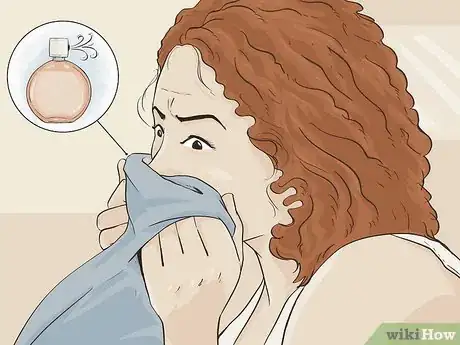



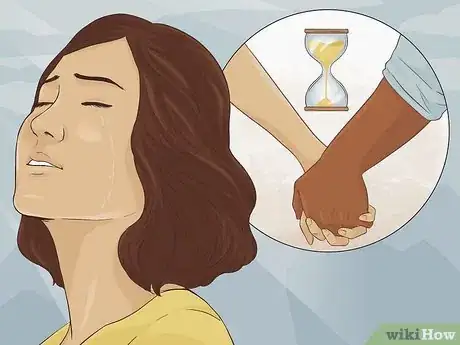
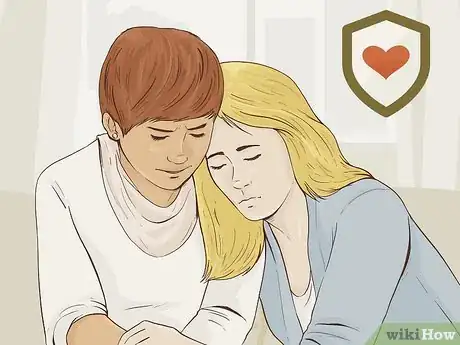
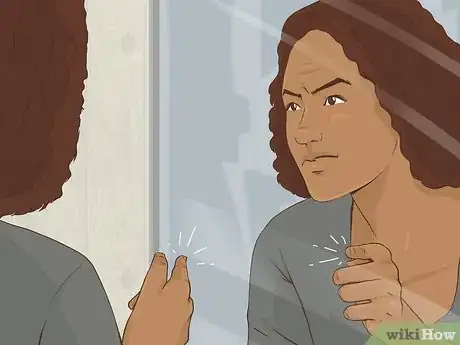





























































Medical Disclaimer
The content of this article is not intended to be a substitute for professional medical advice, examination, diagnosis, or treatment. You should always contact your doctor or other qualified healthcare professional before starting, changing, or stopping any kind of health treatment.
Read More...